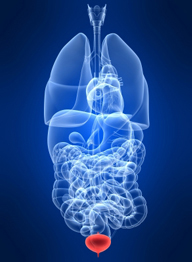

Call for an appointment 561-964-1212
Why has my doctor recommended a prostate biopsy?
My PSA test was high should I worry?
What preparation is necessary for a prostate biopsy?
Learn About the Conditions Treated,Tests & Procedures Performed In our State-of-the-Art Facilities
For an appointment call 561-964-1212

What do I need to do to prepare for my Cystoscopy?
What can I expect after my cystoscopy?
I’m having a vasectomy. What do I need to do to prepare?
What can I expect after my vasectomy?
I have had a prostate biopsy, what can I expect afterwards?
What preparations should I make before hospital or outpatient surgery?
I had a stone removed from my ureter with a camera (ureteroscopy). Now what?
I had a stone removed from my ureter with a camera (ureteroscopy), now what?
After a ureteroscopy, most patients will have a ureteral stnet in place. This is a tube been placed between the kidney and bladder to ensure uninterrupted urine flow following surgery. The stent is not permanent and must be removed in the time frame instructed to you at the time of hospital discharge. If you were not given instructions, please call our office--561 964-1607. Unless otherwise specified a stent may not remain in place for longer than 3 months, this risks it becoming stuck, or fragmenting into several pieces which will require further surgeries and may result in the loss of a kidney.
It is normal to experience a frequent need to urinate or have burning with urination due to the presence of the stent. Some patients may also notice a sharp pain in the back when urinating. These should resolve once the stent is removed. If the pain is intolerable or if you have fever, you must contact our office immediately for further instruction. Blood in the urine is also normal, but you must notify your doctor if the bleeding becomes heavy or if you are unable to urinate.
What preparations should I make before hospital or outpatient surgery?
You should cease taking all aspirin, ibuprofen, fish oil, naproxene and other antiplatelet agents at least 1 week prior to your scheduled procedure. A full list of such medications can be found here. If you are on warfarin or any other blood thinners for a blood clot, heart condition, stroke or cardiac stent, please contact our office for specific instructions regarding stoppage of these medications.
Our surgical coordinator should provide you with information on the time and place you should present on the morning of your surgery. If you do not have this information, or you have further questions, call University Urologists 561 964-1607 during regular business hours. Do not call with routine pre-operative questions when our office is closed, as the on-call physician may not be the physician caring for you and will likely not be able to answer your questions.
Please ensure you have a ride home as you will not be cleared to drive following your procedure. You should be sure to arrange a follow up visit within the time frame instructed at the time of discharge from the facility.
I have had a prostate biopsy, what can I expect afterwards?
After a prostate biopsy you should take care to rest and not do any strenuous activity for the first 24 hours. Thereafter, you may resume normal activities. If you should feel light headed or faint you should sit down until the feeling passes and notify our office. Your doctor should also be informed if you have any fevers, heavy bleeding or any increasing pain. A small amount of blood in either the urine or from the rectum is normal and should resolve within a few days. Blood in the semen may be present for up to 6 weeks. If your symptoms exceed this amount of time, inform your doctor. Results are reviewed in the office setting, anticipate it will be at least 1 week before the results are available Please do not call for biopsy results over the phone. It is our office policy to not release this information without further discussion, whether it is positive or negative.
What preparation is necessary for a prostate biopsy?
If you are scheduled for a prostate biopsy, you should be sure that you are off any aspirin, ibuprofen, warfarin, clopidrogel, or any other blood thinners for 7 days. You should plan to have somebody with you to drive you home afterwards. Although only local anesthesia is used and the procedure is well tolerated, you may not be prepared to act rapidly should anything unexpected occur during the drive home.
Some doctors prefer to have you perform an enema to clear out your rectum of any stool. If this is requested, you should be provided with an enema when the procedure is scheduled. You will also be given a prescription for an antibiotic. Plan to begin taking this the day prior to the biopsy and it should be continued through to the day after the biopsy.
My PSA test was high should I worry?
The PSA test was never meant to tell us who has cancer. Rather, it is a guide to help us decide who would most benefit from a biopsy. The biopsy will identify any cancer. While the PSA test is not a perfect test, it has been shown to allow earlier detection of prostate cancer so that we may catch it before it spreads or grows to the point that it can cause pain, bleeding, or inability to urinate. Evidence has shown that prostate cancer spread and death from prostate cancer have both been significantly reduced since the advent of the PSA test. Certain groups of people, such as African-Americans and people with a strong family history of prostate cancer, are more likely to be diagnosed with more aggressive cancer and to develop it at an earlier age These groups especially should discuss the benefits of PSA testing and PSA results with their doctor.
From the American Urologic Association: "The American Urological Association (AUA) and the Urology Care Foundation believe that the decision to perform early detection for prostate cancer should be made in the context of a detailed conversation between an asymptomatic man and his physician, and recommends that men ages 55 to 69 at average risk for prostate cancer should talk with their doctors about being tested. Screening for men outside this age range is not recommended as a routine; however, those men with significant risk factors (family history, race) should discuss early detection with their physicians."
What can I expect after my vasectomy?
Immediately after vasectomy you should initially feel fairly numb from the anesthesia, and this typically wears off in about 1 hour. We will provide a prescription for pain medication should you need any at home. Place an ice pack on the scrotal area 15 minutes on / 15 minutes off for the first couple of hours to reduce swelling. Monitor yourself for any bleeding or changes in scrotal size. Most bleeding will be very mild, if present at all. However if you notice rapid scrotal enlargement or heavy bleeding you must notify us immediately.
After the procedure you should abstain from intercourse for 1 week. You may then resume normal activity once we have seen you for a post procedure check to ensure no problems. You must use protection until 2 separate semen specimens (done 2 months and 3 months after the vasectomy) show no sperm present. You are considered fertile until that time. You should ejaculate at least 15 times prior to your semen tests in order to clean any sperm cells still in the tubing.
I’m having a vasectomy. What do I need to do to prepare?
Men undergoing a vasectomy should be prepared to have someone drive them home, as we advise no driving for a short time after the procedure. Please bring a scrotal support with you as this will aid with discomfort after the vasectomy. We also recommend shaving any hair in the scrotal area to keep the area as clean as possible.
What can I expect after my cystoscopy?
The scope typically does slightly irritate the urethra, so expect a little burning when you urinate. Over the counter Azo may help with this and can be found at most pharmacies. You may see a little blood as well stemming from the scope rubbing against the tissue. This is usually self limiting and requires no treatment. Increasing your water intake may help to flush the system and stop the bleeding sooner. You may be asked to continue to hold or to retake any blood thinners, please ask your doctor if this pertains to you.
What do I need to do to prepare for my Cystoscopy?
For a typical cystoscopy, no special preparation is necessary. You do not need to fast and you may continue to take your normal medications. If a biopsy is anticipated at the same time, you may be asked to hold aspirin, ibuprofen, warfarin, clopidrogel, and other blood thinners for 3-5 days. You do not need to plan to have someone bring you home after the procedure as the vast majority of patients have no problems driving. Just prior to the procedure you will be given an oral antibiotic to reduce the likelihood of infection. While is most cases infection is not a concern, please be aware that one does develop on occasion.
Why has my doctor recommended a prostate biopsy?
You may have had an abnormal blood test, called a PSA, or there may have been something felt on your prostate examination that triggered the biopsy. While the test and the exam may signal a possible problem, the only way to truly tell if cancer is present is to have a biopsy. Please realize, however, that there is still a possibility that if the biopsy does not show cancer you may still have cancer present that was not picked up. This is because the biopsy only samples the prostate and cannot assess the entire gland.
frequently asked questions
mouse over FAQ for answers
click on conditions/tests below
OR for more information
CONDITIONS TREATED
Urologic Cancers
– Any segment of the genitourinary system is capable of developing a cancerous tumor. Most commonly we help diagnose and treat patients with prostate, kidney, bladder and testicular cancers. Prostate cancer is the most common malignancy in men, with a yearly estimated incidence of 230,000 new cases. However, bladder and kidney cancer are also commonly seen, and affect both men and women. Treatment options for urologic cancers range from minimally invasive procedures to radiation to surgery to remove the organ, depending on the situation. An in depth discussion will help us work together to decide which option is right for you.
Prostate Enlargement
As men age, their prostates tend to grow. Over time the growth often can become significant enough to block urine flow, causing difficulties emptying the bladder. This may result in the need to urinate often during the day and night, delays in starting your urinary stream or needing to strain to get urine out. Other symptoms are also possible and, in extreme cases, you may be unable to urinate at all. Often times, medication is sufficient to help combat this problem. If medications do fail, though, we offer minor procedures and outpatient surgery to help you urinate better without having to spend time in the hospital.
Kidney Stones
LoremA commonly found problem, especially in the warm climates of South Florida, kidney stones can be a source of pain ranging from mild aching to severe, intolerable pain. The pain can present anywhere in the back, flank, abdomen and groin/testicles. Many will be able to pass by themselves given time and lots of fluid. Unfortunately, those too large to pass or causing fevers, intolerable pain or vomiting will require surgery. Luckily we have advanced to the point that the vast majority of stones can be effectively treated with only external (outside the body) sound waves or with a camera and laser.
Incontinence
Incontinence, or the inability to hold urine without it coming out of its own accord, is not just a female problem. Many men also have difficulties with urinary control. Leakage may occur due to weakness of the pelvic floor and urethra, a bladder that has spasms, a bladder that is overly full of urine and can’t be emptied, or a combination of the above causes.
Voiding Dysfunction
Incontinence, or the inability to hold urine without it coming out of its own accord, is not just a female problem. Many men also have difficulties with urinary control. Leakage may occur due to weakness of the pelvic floor and urethra, a bladder that has spasms, a bladder that is overly full of urine and can’t be emptied, or a combination of the above causes.
Male General Health
Any issues with the male genital tract are also dealt with by urologists. These include erection and ejaculation problems, abnormalities noticed on exam, skin rashes and lesions, and genital cancers. The issue you are experiencing may be commonplace or rare, but we can help guide you to get the answers and help you need.
 Infertility
Infertility
A growing proportion of the population are having difficulties achieving a successful pregnancy. In 70% of these cases, a male factor may be at least part of the problem. Our workup and the available treatment options have helped large numbers of people to have the child they always dreamed of.
No Scalpel Vasectomies
For those men who have decided their families are complete, we offer vasectomies in the office. This is a minor procedure done under local anesthesia, from which men typically recover rapidly. It is over 99% effective at preventing pregnancy while being both safe and well tolerated.
Urologic Cancers
TESTS & PROCEDURES
We offer the following tests and imaging in the comfort of our office
Ultrasound of the kidneys, bladder & scrotum and Prostate
Urine Cultures
Lab Blood draws and testing
Prostate Biopsy to identify potential prostate cancer
Urodynamics testing to evaluate the function of, and any blockage of the bladder
Botox
The use of Botox (Botulinum Toxin A) has been used for years both cosmetically and medically. It is now FDA approved for use in the bladder to help treat overactive bladder that has not responded to medications. This procedure involves a series of injection of botox into the bladder using a very fine needle. The procedure is done using a small camera, called a cystoscope, and made comfortable by the use of a local anesthestic. Expect about 2 weeks for the medication to kick-in and take effect.
TUMT Micro-wave Prostate Thermotherapy
For those men having significant urinary difficulties due to prostate enlargement, we offer microwave thermotherapy. This involves the delivery of microwave energy into the prostate via a catheter. It takes less than an hour and does not require a trip to the hospital or anesthesia. It is a good choice for those men who cannot or don’t want to take medication and would like improvement in their urinary symptoms.
No Scalpel Vasectomy
For those men who have decided their families are complete, we offer vasectomies in the office. This is a minor procedure done under local anesthesia, from which men typically recover rapidly. We make one or two small openings into the scrotum, through which we are able to control the tube that bring sperm cells up to meet the rest of the semen. It is over 99% effective at preventing pregnancy while being both safe and well tolerated.
Bladder Instillation
Bladder instillations of BCG or mitomycin can often be done for patients with bladder cancer, to help prevent new tumors from forming and to help combat any microscopic cells that remain. Cocktails of lidocaine, bicarbonate and heparin can be used for people with chronic bladder pain syndromes. Both types of instillations are done through a small catheter.
This is a fairly new procedure meant for patients with overactive bladder symptoms (having to urinate often, urgently and/or having unwanted leakage of urine) when medications have failed. Called percutaneous tibial nerve stimulation (PTNS), it involves the delivery of pulses of electrical stimulation via a small acupuncture sized needle. The pulses are mild and not painful, and are delivered during a 25 minute treatment cycle. A total of 12 cycles are often done on a weekly basis for the maximum benefits. Maintenance programs are also possible for those patients who have a good response, but which starts to fade over time. You can find more information about this at the Uroplasty Urgent PC site.
This is a minor procedure whereby your doctor is able to look directly at your urethra and bladder with a small camera. The procedure is generally well tolerated with local anesthesia, using lidocaine jelly administered through the urethra. Often during the course of the test we may remove an additional sample of urine for specialized testing.
Sacral Neuromodulation
Some patients may not respond well to medications for frequent urination and/or urgency and incontinence problems. In these cases neuromodulation has been found to be effective in a large proportion of patients. Over two thirds of people who have undergone sacral neuromodulation have noticed a decrease of 50% or more in their symptoms. Testing to see if you are a candidate for this minor procedure is done in the office under local anesthesia. A small wire is introduced through a needle and is then used for a 1 week testing period to see if you benefit. More information on this can be found at this location (link to Medtronics, Interstim).

copyright 2013 University Urologists | Call for an appointment 561-964-1212


